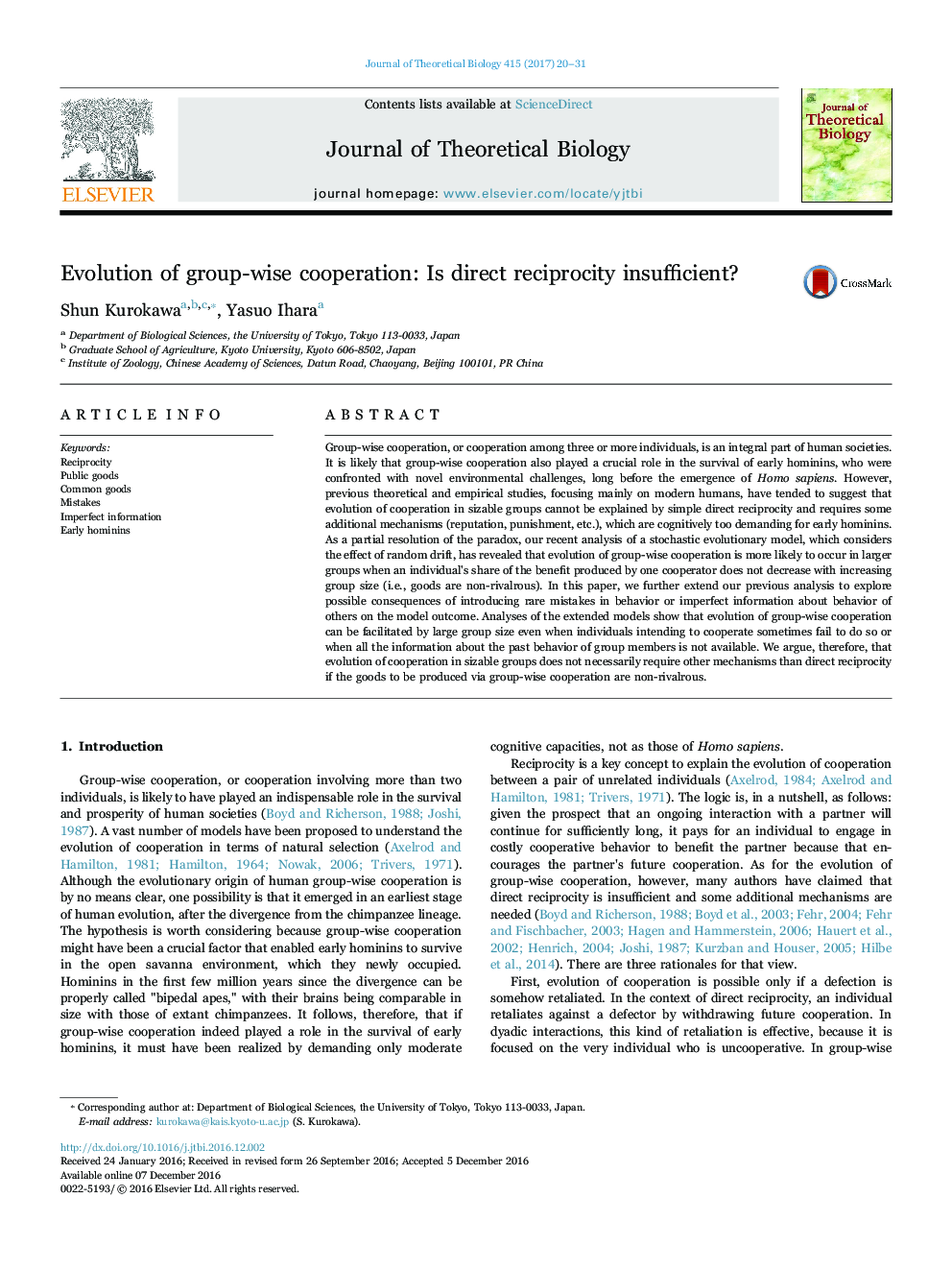| کد مقاله | کد نشریه | سال انتشار | مقاله انگلیسی | نسخه تمام متن |
|---|---|---|---|---|
| 5760098 | 1623795 | 2017 | 12 صفحه PDF | دانلود رایگان |
عنوان انگلیسی مقاله ISI
Evolution of group-wise cooperation: Is direct reciprocity insufficient?
ترجمه فارسی عنوان
تکامل همکاری گروهی: آیا تقارن مستقیم کافی نیست؟
دانلود مقاله + سفارش ترجمه
دانلود مقاله ISI انگلیسی
رایگان برای ایرانیان
کلمات کلیدی
متقابل، اجناس عمومی، کالاهای عادی، اشتباهات، اطلاعات نامناسب، هومیین های اولیه
موضوعات مرتبط
علوم زیستی و بیوفناوری
علوم کشاورزی و بیولوژیک
علوم کشاورزی و بیولوژیک (عمومی)
چکیده انگلیسی
Group-wise cooperation, or cooperation among three or more individuals, is an integral part of human societies. It is likely that group-wise cooperation also played a crucial role in the survival of early hominins, who were confronted with novel environmental challenges, long before the emergence of Homo sapiens. However, previous theoretical and empirical studies, focusing mainly on modern humans, have tended to suggest that evolution of cooperation in sizable groups cannot be explained by simple direct reciprocity and requires some additional mechanisms (reputation, punishment, etc.), which are cognitively too demanding for early hominins. As a partial resolution of the paradox, our recent analysis of a stochastic evolutionary model, which considers the effect of random drift, has revealed that evolution of group-wise cooperation is more likely to occur in larger groups when an individual's share of the benefit produced by one cooperator does not decrease with increasing group size (i.e., goods are non-rivalrous). In this paper, we further extend our previous analysis to explore possible consequences of introducing rare mistakes in behavior or imperfect information about behavior of others on the model outcome. Analyses of the extended models show that evolution of group-wise cooperation can be facilitated by large group size even when individuals intending to cooperate sometimes fail to do so or when all the information about the past behavior of group members is not available. We argue, therefore, that evolution of cooperation in sizable groups does not necessarily require other mechanisms than direct reciprocity if the goods to be produced via group-wise cooperation are non-rivalrous.
ناشر
Database: Elsevier - ScienceDirect (ساینس دایرکت)
Journal: Journal of Theoretical Biology - Volume 415, 21 February 2017, Pages 20-31
Journal: Journal of Theoretical Biology - Volume 415, 21 February 2017, Pages 20-31
نویسندگان
Shun Kurokawa, Yasuo Ihara,
